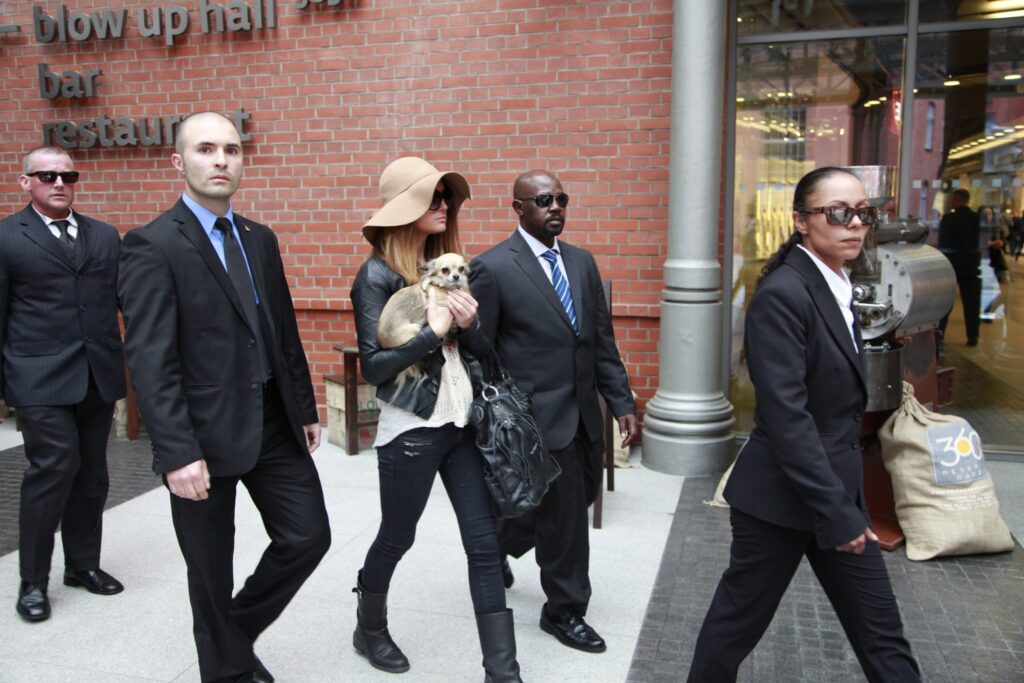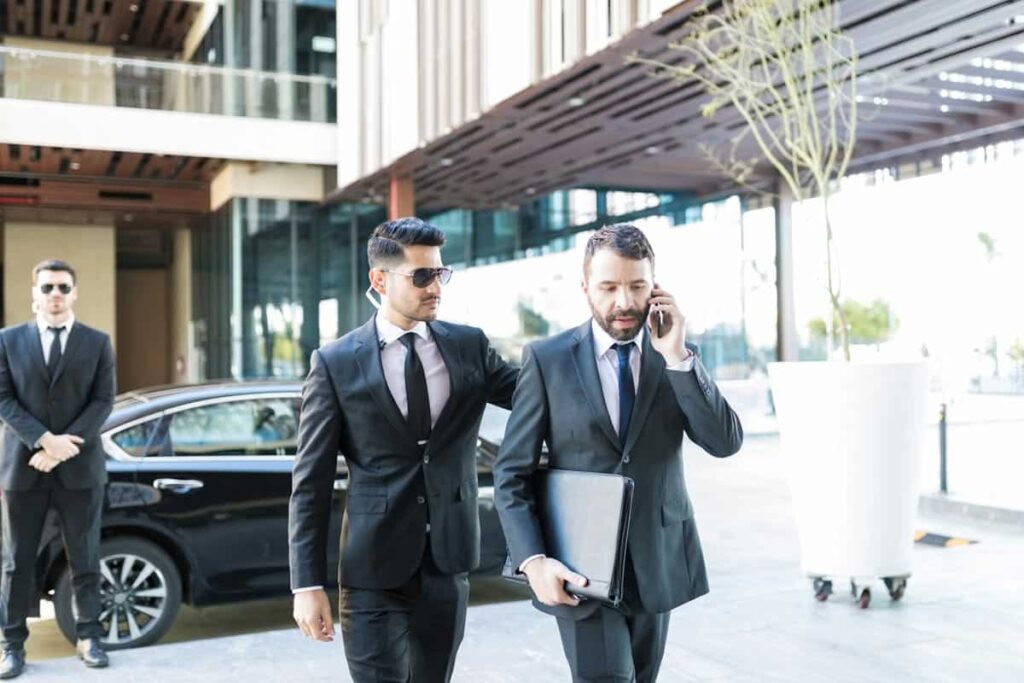In a world where personal safety is paramount, Close Protection Operatives (CPOs) play a critical role. But what exactly does a CPO do? From safeguarding high-profile individuals to ensuring corporate executives can travel safely, CPOs are the unsung heroes working behind the scenes to keep their clients safe from various threats.
The Role of a Close Protection Operative
Responsibilities
A Close Protection Operative’s primary responsibility is to protect their clients from potential threats. This includes planning security measures, escorting clients, and staying vigilant to prevent any harm. Whether it’s a threat from physical assault, kidnapping, or unwanted attention, CPOs are trained to handle it all.
Key Skills and Attributes
To be effective, a CPO must possess a unique set of skills and attributes. Physical fitness, keen observation skills, quick decision-making abilities, and excellent communication are all crucial. Additionally, a CPO needs to remain calm under pressure and be able to think on their feet in high-stress situations.

Types of Clients and Situations
High-Profile Individuals
High-profile individuals, such as politicians, royalty, or business moguls, often require the services of CPOs. The higher their public profile, the greater the risk of threats, making the presence of a skilled CPO essential.
Corporate Executives
Corporate executives, especially those involved in international business, frequently need protection. They might face threats from competitors, disgruntled employees, or activists, necessitating the constant vigilance of a CPO.
Diplomatic Protection
Diplomats and government officials are other common clients. CPOs in this field ensure that these individuals can perform their duties safely, particularly in volatile regions.
Celebrity Protection
Celebrities often require protection from overzealous fans and paparazzi. CPOs help manage crowds, prevent unwanted interactions, and ensure their client’s privacy and safety.
High-Risk Situations
In high-risk situations, such as visiting conflict zones or attending high-stakes meetings, CPOs must be even more vigilant. Their ability to assess and react to threats in these environments is crucial.
Training and Qualifications
Basic Requirements
The path to becoming a CPO begins with meeting basic requirements, such as having a clean criminal record and a background in security or military service.
Specialized Training Programs
CPOs undergo specialized training programs that cover a wide range of skills. These include close combat techniques, defensive driving, and emergency medical response.
Physical and Mental Training
The job demands peak physical fitness and mental resilience. CPOs train rigorously to maintain their physical condition and develop the mental toughness required to handle high-pressure situations.
Certification and Licensing
Depending on the region, CPOs must obtain various certifications and licenses. These validate their training and authorize them to perform protective services legally.
Operational Planning
Risk Assessment
Every operation begins with a thorough risk assessment. CPOs evaluate potential threats to their client and devise strategies to mitigate these risks.
Route Planning
Planning safe travel routes is another critical duty. CPOs must consider traffic patterns, possible choke points, and alternative routes to ensure their client’s safety.
Advance Work
Advance work involves visiting locations ahead of time to identify potential hazards. This proactive approach allows CPOs to address risks before their client arrives.
Contingency Planning
Effective CPOs always have a plan B (and C, D, and E). Contingency planning ensures they are prepared for any unexpected developments.
On-the-Ground Duties
Personal Escort
CPOs often act as personal escorts, staying close to their clients to provide immediate protection. Their presence deters potential threats and ensures quick action if needed.
Secure Transportation
Providing secure transportation is another key duty. This includes driving the client and ensuring the vehicle is safe from any tampering or tracking.

Surveillance and Counter-Surveillance
CPOs use surveillance and counter-surveillance techniques to monitor potential threats. This involves keeping an eye out for suspicious behavior and ensuring they aren’t being followed.
Crowd Control
Managing crowds, especially for celebrities or public figures, is part of the job. CPOs ensure their client can move safely through crowds and avoid any dangerous encounters.
Use of Technology
Surveillance Equipment
Modern CPOs utilize advanced surveillance equipment to monitor surroundings. Cameras, drones, and other devices help them keep an eye on potential threats.
Communication Devices
Effective communication is vital. CPOs use secure communication devices to stay in constant contact with their team and coordinate actions.
GPS and Tracking Systems
GPS and tracking systems help CPOs plan routes and monitor their client’s location in real-time, ensuring they can respond swiftly to any threats.
Cybersecurity Measures
In today’s digital age, cybersecurity is also a concern. CPOs work to protect their client’s digital footprint and secure their communications from hacking and other cyber threats.
Team Coordination
Working with Other Security Personnel
CPOs often work as part of a larger security team. Coordination with other security personnel ensures comprehensive protection for the client.
Coordination with Local Authorities
In many situations, CPOs must liaise with local authorities to ensure legal compliance and gain assistance when needed.
Medical Response Team
Having a medical response team on standby is crucial. CPOs need to ensure that medical help is available promptly in case of emergencies.

Cultural Sensitivity and Discretion
Understanding Client’s Needs
Every client is different, and understanding their specific needs is vital. This includes being aware of their preferences and any particular threats they might face.
Maintaining Confidentiality
Discretion is a key part of the job. CPOs must keep their client’s movements and personal information confidential to ensure their safety.
Cultural Competence
CPOs often work in diverse environments and need to be culturally competent. Understanding and respecting local customs and practices is essential to performing their duties effectively.
Challenges Faced by CPOs
High-Stress Environments
The job of a CPO is inherently stressful. Constant vigilance, long hours, and the need to be ready for anything can take a toll.
Adapting to Different Threat Levels
Threat levels can change rapidly, and CPOs must be able to adapt quickly. This requires flexibility and the ability to stay calm under pressure.
Balancing Personal Life and Work
The demanding nature of the job can make balancing personal life and work challenging. CPOs often spend long periods away from home, which can strain personal relationships.
Ethics and Legal Considerations
Legal Authority and Boundaries
CPOs must operate within legal boundaries. Understanding their legal authority and the limits of their power is essential to avoid legal complications.
Ethical Decision Making
Ethical decision-making is crucial. CPOs must make decisions that not only protect their client but also adhere to ethical standards.
Use of Force
The use of force is a last resort. CPOs are trained to defuse situations without resorting to violence, but they must be prepared to use force if necessary to protect their client.
Common Misconceptions
Myths about the Profession
There are many myths about what CPOs do, often fueled by movies and TV shows. These misconceptions can create unrealistic expectations.
Reality vs. Hollywood
The reality of being a CPO is very different from Hollywood portrayals. While the job can be exciting, it’s often more about planning and prevention than dramatic action scenes.
Conclusion
Close Protection Operatives are vital in ensuring the safety of high-profile individuals, corporate executives, and celebrities. Their extensive training, ability to handle high-stress situations, and dedication to their clients’ safety make them indispensable. As the world becomes increasingly unpredictable, the role of CPOs will only grow in importance.

